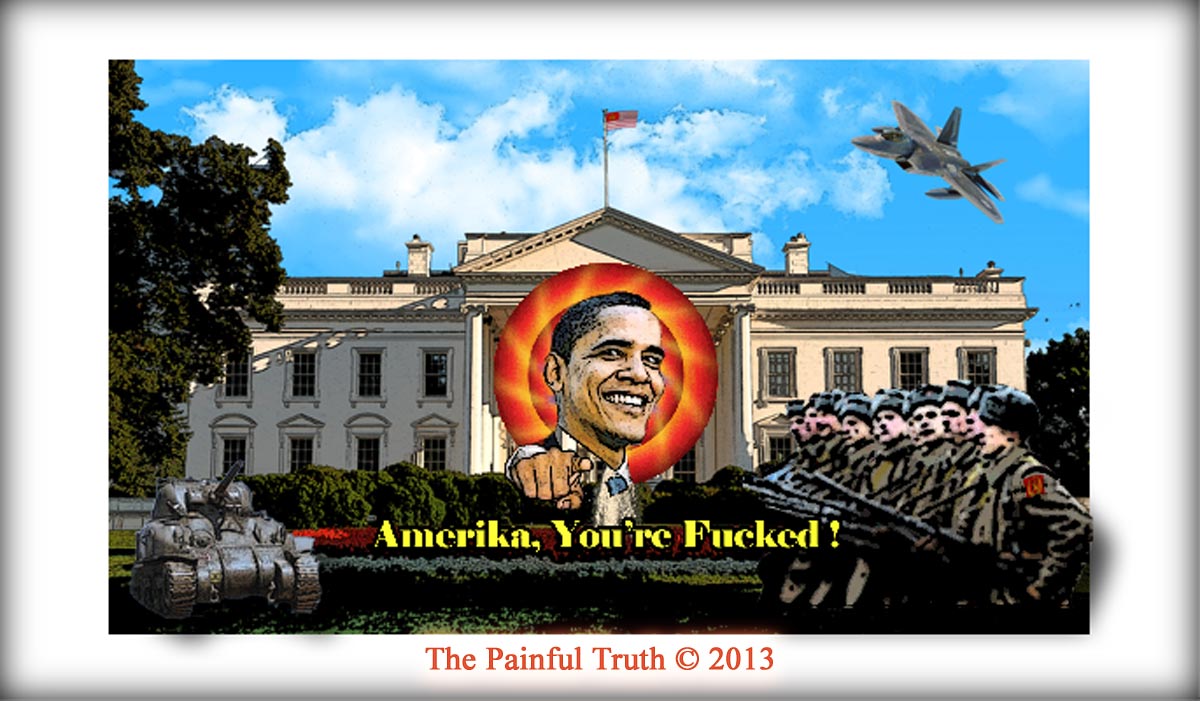Britain’s American colonies broke with the mother country in 1776 and were recognized as the new nation of the United States of America following the Treaty of Paris in 1783. During the 19th and 20th centuries, 37 new states were added to the original 13 as the nation expanded across the North American continent and acquired a number of overseas possessions. The two most traumatic experiences in the nation’s history were the Civil War (1861-65), in which a northern Union of states defeated a secessionist Confederacy of 11 southern slave states, and the Great Depression of the 1930s, an economic downturn during which about a quarter of the labor force lost its jobs. Buoyed by victories in World Wars I and II and the end of the Cold War in 1991, the US remains the world’s most powerful nation state. Since the end of World War II, the economy has achieved relatively steady growth, low unemployment and inflation, and rapid advances in technology. Until now.
What’s is store for America and the World?
The world of 2030 will be radicallytransformed from our world today.By 2030, no country—whether theUS, China, or any other large country—willbe a hegemonic power. The empowermentof individuals and diffusion of power amongstates and from states to informal networks willhave a dramatic impact, largely reversing thehistoric rise of the West since 1750, restoringAsia’s weight in the global economy, andushering in a new era of “democratization”at the international and domestic level.
How the United States’ international role evolvesduring the next 15-20 years—a big uncertainty—andwhether the US will be able to work with new partnersto reinvent the international system will be amongthe most important variables in the future shape ofthe global order. Although the United States’ (and theWest’s) relative decline vis-a-vis the rising states isinevitable, its future role in the international systemis much harder to project: the degree to which the UScontinues to dominate the international system couldvary widely.The US most likely will remain “first among equals”among the other great powers in 2030 because ofits preeminence across a range of power dimensionsand legacies of its leadership role. More importantthan just its economic weight, the United States’dominant role in international politics has derivedfrom its preponderance across the board in both hardand soft power. Nevertheless, with the rapid rise ofother countries, the “unipolar moment” is over andPax Americana—the era of American ascendancyin international politics that began in 1945—is fastwinding down.
The US impact is much more clear-cut in the negative
case in which the US fails to rebound and is in sharp
economic decline. In that scenario, a large and
dangerous global power vacuum would be created and
in a relatively short space of time. With a weak US, the
potential would increase for the European economy to
unravel. The European Union might remain, but as an
empty shell around a fragmented continent.
FEW COMPETING VISIONS OF A NEW INTERNATIONAL ORDER—FOR THE MOMENT:
The replacement of the United States by another global power and erection of a new international order seems the least likely outcome in this time period. No other power would be likely to achieve the same panoplyof power in this time frame under any plausible scenario. The emerging powers are eager to take their places at the top table of key multilateral institutions such as UN, IMF, and World Bank, but they do not espouse any competing vision. Although ambivalent and even resentful of the US-led international order,they have benefited from it and are more interested in continuing their economic development and political consolidation than contesting US leadership.In addition, the emerging powers are not a bloc:they don’t have any unitary alternative vision. Their perspectives—even China’s—are more keyed to shaping regional structures. A collapse or sudden retreat of US power would most likely result in an extended period of global anarchy where there would be no stable international system and no leading power to replace the US. When we have discussed decreasing US power abroad, many scholars and analysts have tended to assume even greater levels of chaos and disorder would ensue than many US experts.
Marx Update for the 21st Century:
I’m not sure that the US is yet ripe for revolution. It’s done too well from shale gas. The working class there got lulled by the increased manufacturing possibilities as businesses moved back from Asia when US domestic energy prices dropped. But it could be just a matter of time. Entitlement reform in the 2010s didn’t happen because US growth picked up. US debt has continued to climb: it is only a matter of time before entitlements will be back
on the political agenda. The onset of a global downturn with all the turmoil in Europe and elsewhere is beginning to stir up class tensions. The US thinks it is immune, but we’ll see. Unfortunately, opposition activists in America no longer read Marx.
We’ve seen growing class divisions elsewhere, pointing to a potential global revolution.
Japan’s Financial Services Agency will enact new rules that will forced failed bank losses on investors, if needed, via a mechanism known as a “bail-in,” according to The Nikkei. Mitsubishi UFJ (MTU), Mizuho Financial (MFG) and Sumitomo Mitsui (SMFG) are among those proposing amendments to allow them to issue the types of preferred shares or subordinated bonds that would be used in such cases, the report noted.

